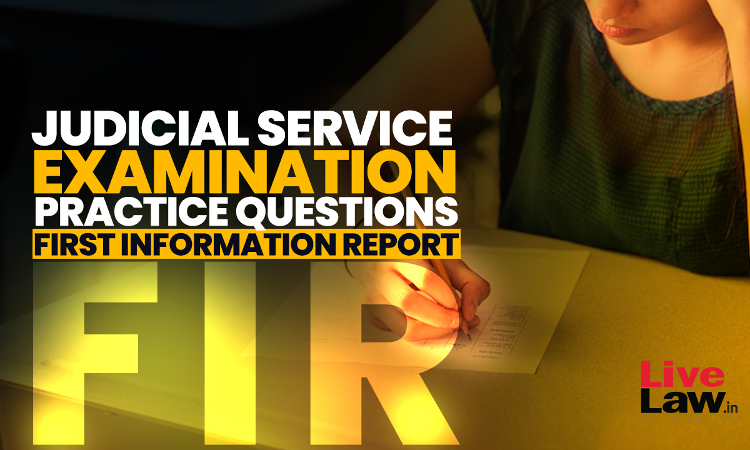Judicial Service Examination- Practice Questions- First Information Report (FIR)
MA Rashid
19 Nov 2022 12:54 PM IST

Next Story
19 Nov 2022 12:54 PM IST
1.A received serious injuries from X and Y. The police received an anonymous message about the incident. The Police recorded the statement of A in the hospital based on which the First Information Statement is registered U/S 307 of IPC against X and Y . Two weeks days later A died of the injuries sustained in the incident. Can the First Information Statement be admissible as Dying...
